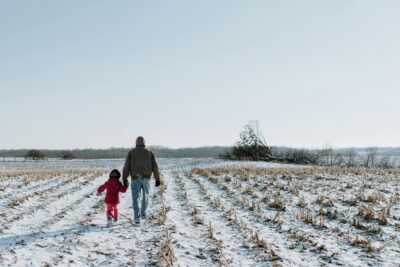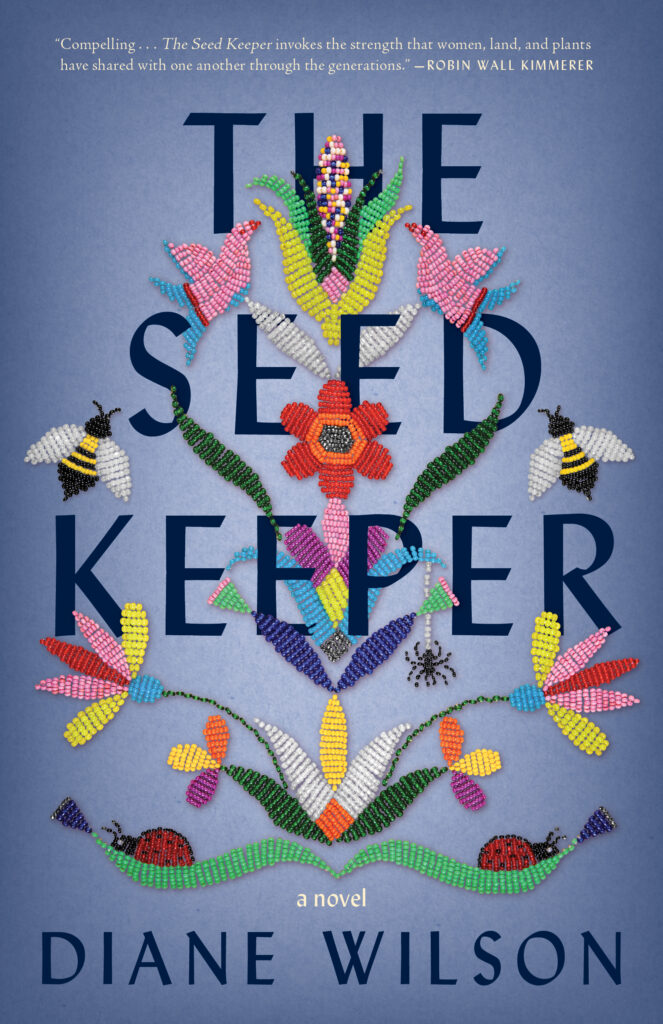In May, Farm Aid welcomed Anna Mulè as our business and marketing director. In this newly created role, she’ll advance Farm Aid’s mission by maximizing brand impact and earned revenue through partnerships, experiential marketing, food and culture programming and festival production. I had the pleasure of virtually sitting down with Anna to delve into what inspired her passion for food and to hear about her journey at Farm Aid so far. Read on for that Q&A.
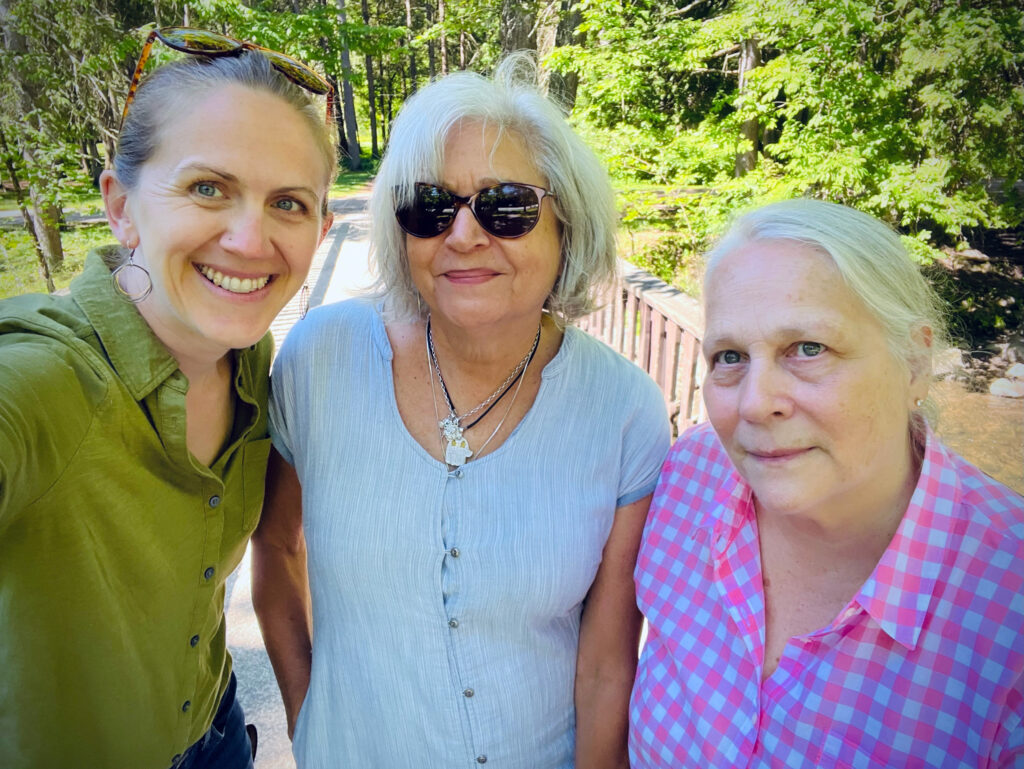
Left to right: Anna Mulè (Business & Marketing Director), Glenda Yoder (Associate Director) and Sonya Dagovitz (Culinary Director)
What is your background or relationship to food or farming?
I grew up in rural upstate New York in Rensselaer County. We raised a small flock of turkeys most years and my dad hunted deer and turkey (still does). We always picked strawberries for jam, apples for applesauce and preserved as much as we could. I don’t think I appreciated it in any special way growing up. It was just how we ate. When I left home, I was forced to think much more critically about food and eventually ended up directing Slow Food USA, a volunteer-based network with themes of biodiversity, food and farm policy and education for eaters.
What inspired you to work on the issues that Farm Aid covers?
My favorite thing is bringing people together and connecting the dots between eater and farmer, chef and fishermen, kids and carrots. In a way, it’s “rewilding” our communities and uplifting how we are all connected to one another, to the earth, to our food. It’s amazing to put music at the center of those connections. Music helps us remember that this work is soulful, creative, spiritual.
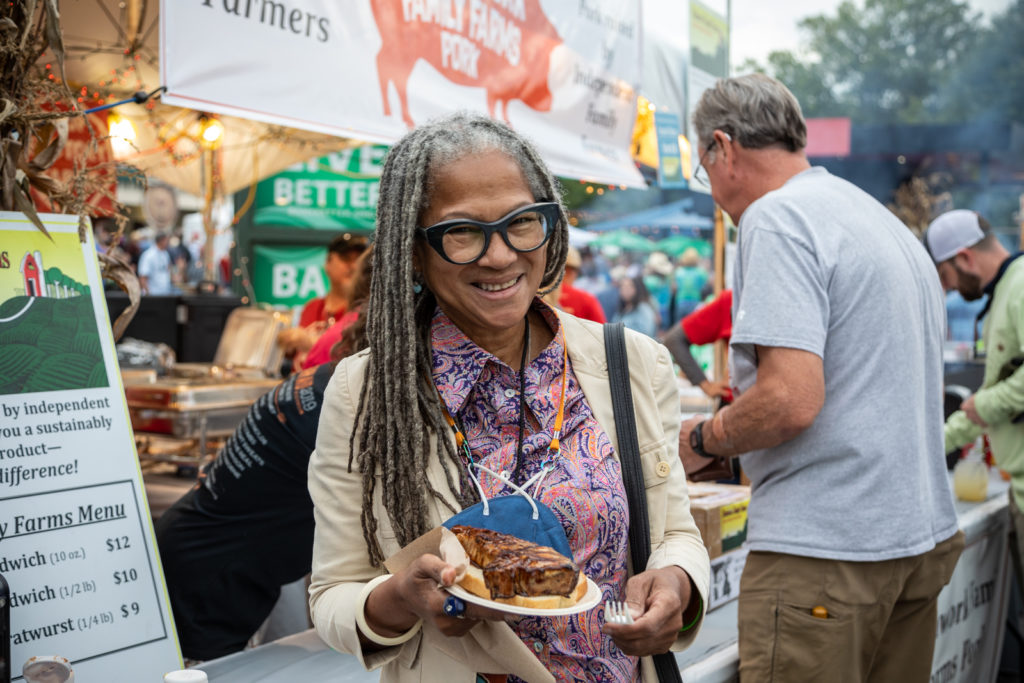
Savi Horne of the Land Loss Prevention Project with food from Patchwork Family Farms at Farm Aid 2022. Photo © Lise Metzger
You’ll be working to expand HOMEGROWN’s impact. What pieces of that work are you most excited about?
Farm Aid, with Glenda Yoder (Associate Director) and Sonya Dagovitz (Culinary Director) leading the charge, launched HOMEGROWN in 2007, revolutionizing the concessions at the our festival and connecting eaters to good food. We’re now bringing that model to other live music venues and shows, using concessions to strengthen the local food economy, introduce farmers to new market opportunities and serve up some incredibly tasty food. Our gold standard has four elements:
- the food is sourced directly from family farmers
- these farmers use ecological growing practices
- farmers are paid a fair price
- the meal is served on compostable serviceware
It’s really fun to partner with farmers and companies doing the hard work of regenerative, organic soil-enhancing agriculture.
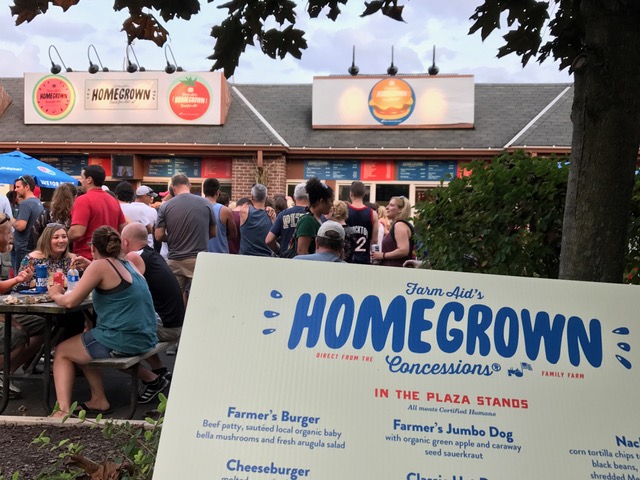
A menu showing the HOMEGROWN Concessions® available at Farm Aid 2019
You’ve never been to a Farm Aid festival before, right? Who would be your Farm Aid dream artist, past or present?
Not yet — I’m excited! I love the possibilities for collaboration. I’d love to see Beyoncé sing with Rhiannon Giddens and Willie Nelson. I mean, we’re dreaming right? Let’s go!
Do you have any favorite books about food or farming?
My favorite read from the last few years is The Seed Keeper by Diane Wilson. She is a tremendous Dakota writer and this fictional story captured my imagination and gave me so much context for the Native American food sovereignty movement. Everyone should read it.
What farmers market item do you think about all year long?
My favorite move at the local GrowNYC market in Brooklyn is to buy a big, juicy tomato from Toigo Orchards, a ball of burrata cheese from Goodale Farms and fresh ciabatta from Wave Hill Breads. Then I cut some fresh basil from my little porch garden and enjoy the best summer sandwich ever. I could eat that every day.
In your first week at Farm Aid, you jumped in to help source and promote HOMEGROWN food for concertgoers at the Neil Young and Dave Matthews Band tours. What was it like working on that project?
I feel like I jumped into a swift river! The work moves fast and we are building systems as we go. Neil Young told all venues that he would only perform if they promised to remove GMO foods and CAFO/factory farm meats. There are some obvious changes to find grass-fed or organic meats, but then when you drill down into every ingredient in every concession item, it gets complicated quickly. Where do you get non-GMO baked goods? How to find non-GMO french fries? Luckily, Glenda and Sonya are working on this and are pros. I am absorbing and supporting as much as I can as we slowly expand this work so that we can foster a local farm economy around venues for on-going, seasonal supply. But I got to see Neil Young and Crazy Horse in Queens and it was amazing to experience our work in action and hear stories from farmers completely jazzed that their products were going to the Neil Young tour.
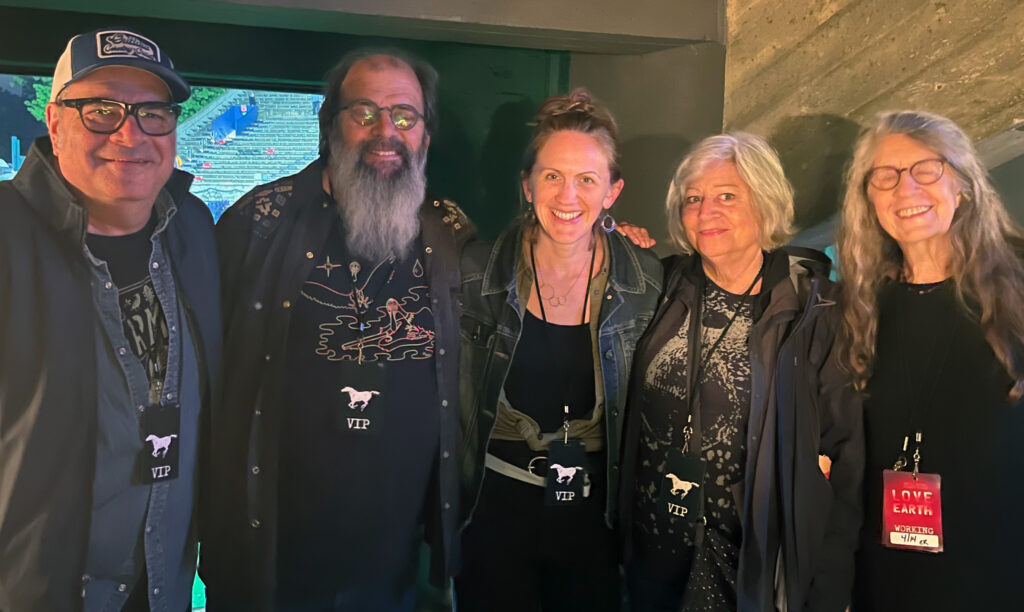
Backstage at Neil Young & Crazy Horse Tour in Queens, New York
